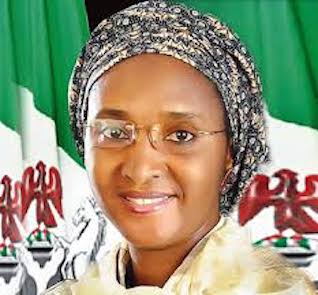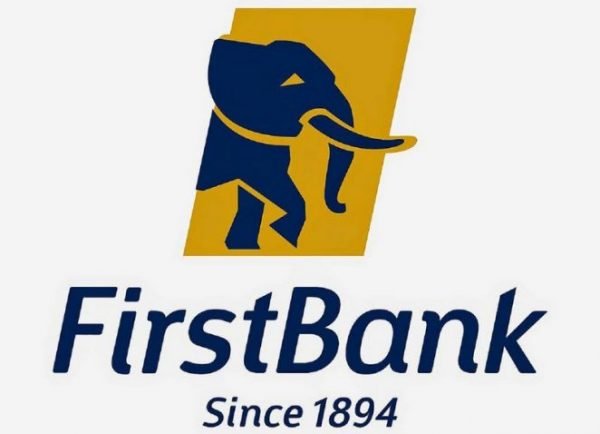Economy
2020 Budget: FG Allocates N1.33 Trn for Capital Expenditure

By Tony Obiechina, Abuja
The Federal Government has allocated over N1,322.92 trillion on capital expenditure for 12 top Ministries, Departments and Agencies (MDAs) in the 2020 Budget.
This is even as the Government admitted that it was responsible for the failure of Public Private Partnership (PPP) projects in the country.
The Minister of Finance, Budget and National Planning, Mrs Zainab Ahmed who disclosed this while breaking down the 2020 budget in Abuja on Monday, said the government plans to spend a total of N10. 33 trillion in the budget.
Allocations to the MDAs according to the Minister include, Federal Ministry of Works and Housing (N259.2 billion); Ministry of Power (N127.67 billion); Federal Ministry of Transportation (N123.07 billion); Federal Ministry of Education (N162.7 billion), Ministry of Defence, (99.87 billion); Federal Ministry of Health (N90.98 billion); Federal Ministry of Agriculture (N79.79 billion); Federal Ministry of Humanitarian Affairs Disaster Management and Social Development (N45.45 billion).
Others are: Federal Ministry of Aviation (N53.85 billion); Federal Ministry of Water Resources (78.34 billion); Federal Ministry of Industry, Trade and Investment (N41,34 billion) and Federal Ministry of Science and Technology (N37.55 billion).
Ahmed explained that the PPP projects failed in Nigeria because the government failed to prepare them well enough, a situation that discouraged investors from buying into the projects.
“It is true that PPP has not succeeded in Nigeria. We have done quite a lot. Very few have succeeded and the reason is because we are not preparing the projects well enough. And we noticed that, that is a gap.
” And we have authors even by development partners to support ministries departments and agencies that have this eligible PPP projects to support them in packaging this projects. That will enhance our ability to attract private sector investment into those projects. The weakest link we have is the preparation of the PPP projects” she said.
She added however, that the government provided special economic zones under the Ministry of Industry Trade and Investment as well as the presidential development fund which is domiciled under the National Investment Authority (NSIA).
“On the PPP, what is in the budget that I can directly refer you to is the special economic zone under the Ministry of Industry Trade and Investment and also the provision that we have in the Presidential Development Fund which currently lies on a PPP basis by the National Sovereign Investment Authority (NSIA).
“But in the infrastructure ministries, there are several projects that are suitable for PPP. I know that on an annual basis they actually extract projects that are suitable for PPP and give it to Infrastructure Concession Regulatory Commission (ICRC)” she said.
Similarly, the government projected that about N237 billion from looted funds would be used to fund the budget
“On the recovery of looted funds, if you look at the budget we have a provision of N237 billion provided for as a financing item in the budget. This is our projection of how much would be recovered as looted funds. This will be funds that will now be available to fund the budget” the minister explained.
Economy
CBN Takes Steps to Strengthen Banking Sector, Issues Routine Transitional Guidance

The Central Bank of Nigeria (CBN), has introduced time-bound measures for some banks still completing their transition from the temporary regulatory support provided in response to the economic impact of the COVID-19 pandemic.
According to a statement issued by Mrs Hakama Sidi-Ali, , CBN’s Acting Director, Corporate Communications Department , this is part of its ongoing efforts to strengthen the banking system.
Sidi-Ali said that the step was part of the CBN’s broader, sequenced strategy to implement the
recapitalisation programme announced in 2023.
She said that the programme, designed to align
with Nigeria’s long-term growth ambitions, had already led to significant capital inflows and balance sheet strengthening across the sector.
“Most banks have either completed or are on track to meet the new capital requirements well before the final implementation deadline of March 31, 2026.
“The measures apply only to a limited number of banks. These include temporary restrictions on capital distributions, such as dividends and bonuses to support retention of internally generated funds and bolster capital adequacy.
“All affected banks have been formally notified and remain under close supervisory engagement ” she said.
She said that to support a smooth transition, the CBN had allowed limited, time-bound flexibility
within the capital framework, consistent with international regulatory norms.
“Nigeria generally maintains Risk-Based Capital requirements that are significantly more stringent than the global Basel III minimums.
“These adjustments reflect a well-established supervisory process consistent with global norms. Regulators in the U.S., Europe, and other major markets have implemented similar transitional measures as part of post-crisis reform efforts.
“The CBN remains fully committed to continuous engagement with stakeholders throughout this period via the Bankers’ Committee, the Body of Bank CEOs, and other industry forums,” she said.
She said that the goal to ensure a transparent, Nigeria’s banking sector remained fundamentally strong.
According to her, these measures are neither
unusual nor cause for concern.
She said that they were a continuation of the orderly and deliberate implementation of reforms already underway.
She said that the CBN would continue to take all
necessary actions to safeguard the sector’s stability and ensure a robust, resilient financial ecosystem that supports sustainable economic growth. (NAN)
Economy
Cybercrime: First Bank Invests N15bn to Protect Systems From hackers in 5 months –CEO

First Bank HoldCo Plc says it has spent more than N15 billion to protect its systems against criminals between January and June.
Olusegun Alebiosu, the Chief Executive Officer (CEO), First Bank HoldCo Plc, said this in an interview in Abuja on Wednesday.
Alebiosu, who spoke on the sideline of a two-day National Seminar on Banking and Allied Matters for Judges, said the Bank had spent three N3 billion in June to protect its systems.
He said the bank had the best cyber security framework in the country, hence the investment.
The CEO who was speaking on the increasing number of attacks by cybercriminals, especially on banks’ systems, assured First Bank customers of the safety of their monies.
Alebiosu frowned at the rate at which some citizens were involved in cybercrimes, saying the country must move fast to curb their excesses.
”No customer would lose their money in First Bank unjustly.
”If their money is missing in First Bank, First Bank will pay back.
”Before I joined First Bank, I have an account with First Bank.
”One of the reasons why I had an account with First Bank was, I said to myself, if my money is missing, it is the only bank I know I will collect my money without any excuses, ” he said.
Reacting to some customers’ complaints on the delay by the bank to handle cases of fraudulent transactions, Alebiosu said the bank must conduct investigations involving different stakeholders.
The CEO said the delay was caused by the collaboration between the stakeholders involving security agencies and banks where the money was transferred to determine the realities about the cases.
He urged customers to tread carefully in handling and releasing their financial information.
”Customers themselves, most times, also compromise their own security details; I have seen a lot of people that give their cards to somebody to help them withdraw money from their ATM.
”They compromise their password so, when something happens and you say, my money disappeared, you forget the day you gave your card to someone else and they can use that to transfer your money.
”Some people compromise even their own ID on the system carelessly, some give their Bank Verification Number (BVN) and they use it against them.
”Now, why does it take time for the bank to react, everything you give to the bank, the bank has to investigate it.
”The money might have gone to other banks so, you start tracking from other banks but
Sometimes customers are impatient,” he said.
On frauds allegedly perpetrated by staff, he said the bank had internal employee fraud software, that monitors activities of employees on the system.
According to him, if you know how many of our staff we sack on a monthly basis, you won’t believe me.
”So if there are triggers, people will be involved. It is for us to run faster than them, and see how we can help to stop these kinds of things in our system but wherever we see it, we deal with it decisively, ” Alebiosu said.
He said that various stakeholders including the banks, law enforcement agencies and the judiciary had a role to play in curbing cybercrimes. (NAN)
Economy
GTCO Begins Deduction of USSD Fee From Airtime Balance

Guaranty Trust Holding Company (GTCO), says it will begin the deduction of Unstructured Supplementary Service Data (USSD fee from the airtime balance of its customers from June 18.
The bank in a message to its customers on Wednesday, said the N6.98 fee would no longer be deducted from customers’ bank account balance.
”Dear Customer, please be informed that effective June, 18, the N6.
98 USSD fee will be deducted from your airtime balance, no longer from your bank account”.The Nigerian Communications Commission (NCC) had directed deposit money banks (DMBs) to stop deducting charges for USSD transactions directly from customers’ accounts. (NAN)




























